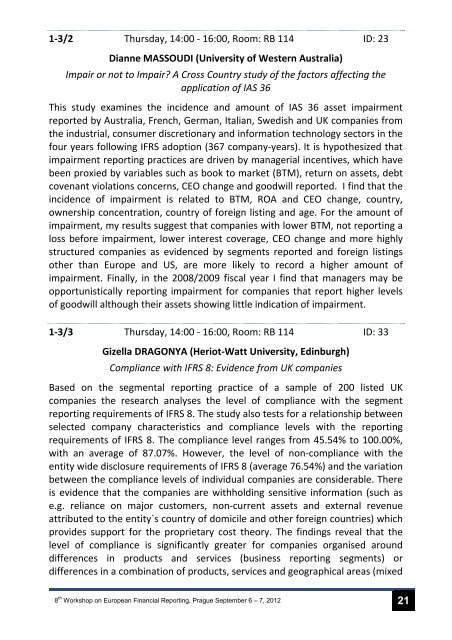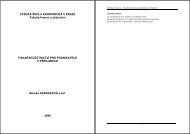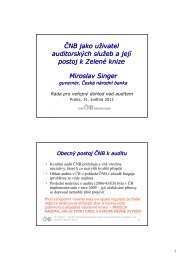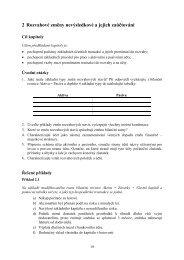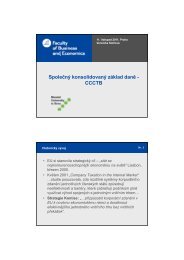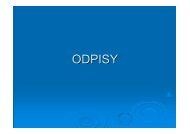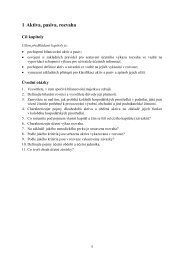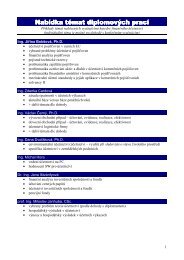EUFIN 2012 - Vysoká škola ekonomická v Praze
EUFIN 2012 - Vysoká škola ekonomická v Praze
EUFIN 2012 - Vysoká škola ekonomická v Praze
You also want an ePaper? Increase the reach of your titles
YUMPU automatically turns print PDFs into web optimized ePapers that Google loves.
1-3/2 Thursday, 14:00 - 16:00, Room: RB 114 ID: 23Dianne MASSOUDI (University of Western Australia)Impair or not to Impair? A Cross Country study of the factors affecting theapplication of IAS 36This study examines the incidence and amount of IAS 36 asset impairmentreported by Australia, French, German, Italian, Swedish and UK companies fromthe industrial, consumer discretionary and information technology sectors in thefour years following IFRS adoption (367 company-years). It is hypothesized thatimpairment reporting practices are driven by managerial incentives, which havebeen proxied by variables such as book to market (BTM), return on assets, debtcovenant violations concerns, CEO change and goodwill reported. I find that theincidence of impairment is related to BTM, ROA and CEO change, country,ownership concentration, country of foreign listing and age. For the amount ofimpairment, my results suggest that companies with lower BTM, not reporting aloss before impairment, lower interest coverage, CEO change and more highlystructured companies as evidenced by segments reported and foreign listingsother than Europe and US, are more likely to record a higher amount ofimpairment. Finally, in the 2008/2009 fiscal year I find that managers may beopportunistically reporting impairment for companies that report higher levelsof goodwill although their assets showing little indication of impairment.1-3/3 Thursday, 14:00 - 16:00, Room: RB 114 ID: 33Gizella DRAGONYA (Heriot-Watt University, Edinburgh)Compliance with IFRS 8: Evidence from UK companiesBased on the segmental reporting practice of a sample of 200 listed UKcompanies the research analyses the level of compliance with the segmentreporting requirements of IFRS 8. The study also tests for a relationship betweenselected company characteristics and compliance levels with the reportingrequirements of IFRS 8. The compliance level ranges from 45.54% to 100.00%,with an average of 87.07%. However, the level of non-compliance with theentity wide disclosure requirements of IFRS 8 (average 76.54%) and the variationbetween the compliance levels of individual companies are considerable. Thereis evidence that the companies are withholding sensitive information (such ase.g. reliance on major customers, non-current assets and external revenueattributed to the entity`s country of domicile and other foreign countries) whichprovides support for the proprietary cost theory. The findings reveal that thelevel of compliance is significantly greater for companies organised arounddifferences in products and services (business reporting segments) ordifferences in a combination of products, services and geographical areas (mixed8 th Workshop on European Financial Reporting, Prague September 6 – 7, <strong>2012</strong> 21


